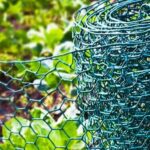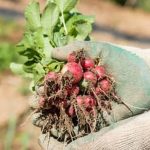Are you wondering, “Is Liquid Fence safe for vegetable gardens?” It’s essential to find safe and effective methods for protecting your vegetable garden from pests. Liquid Fence is a popular pest repellent, and understanding its safety in vegetable gardens is crucial for maintaining a healthy and thriving crop.
Many gardeners are turning to Liquid Fence as an alternative to harsh chemical pesticides. This article will explore the safety of using Liquid Fence in vegetable gardens, addressing common concerns and highlighting its organic and non-toxic nature. Additionally, we’ll provide tips on application and usage, discuss its effectiveness, and compare it to alternative pest control methods.
By the end of this article, you’ll have a comprehensive understanding of whether Liquid Fence is safe for your vegetable garden and alternative eco-friendly methods for pest control. So let’s dive into the world of protecting your vegetables while keeping them safe for consumption.
Understanding Liquid Fence
Liquid Fence is a natural and environmentally friendly pest repellent that is commonly used in vegetable gardens. It is made from natural ingredients, including garlic and red pepper, which emit an odor that deters pests like deer, rabbits, and other animals from damaging the plants. The product comes in a liquid form, allowing it to be easily sprayed on plants and around the garden perimeter for maximum effectiveness.
One of the most common queries among gardeners is whether Liquid Fence is safe for vegetable gardens. The good news is that Liquid Fence is indeed safe for vegetable gardens when used according to the manufacturer’s instructions. It does not harm the plants or vegetables in any way, making it a suitable option for those looking for non-toxic pest control methods.
As with any garden product, it is essential to follow the application instructions carefully to ensure both safety and effectiveness. When applying Liquid Fence in a vegetable garden, make sure to do so during calm weather conditions to prevent drift onto unintended areas. Additionally, always wash fruits and vegetables thoroughly before consumption to remove any residue from the product.
| Liquid Fence | Safe for Vegetable Gardens |
|---|---|
| Natural Ingredients | Yes |
| Non-Toxic | Yes |
| Safety Tips | Follow Application Instructions Carefully |
Safety Concerns
When it comes to using any kind of pest repellent in a vegetable garden, safety is always a top concern for gardeners. One common question that many people ask is, “Is Liquid Fence safe for vegetable gardens?” It’s important to address this concern and provide information to help gardeners make an informed decision about using this product.
Potential Risks and How to Minimize Them
While Liquid Fence is considered safe for use in vegetable gardens, there are still some potential risks to be aware of. One of the main concerns is accidental ingestion by pets or wildlife. The active ingredients in Liquid Fence can cause stomach upset if ingested, so it’s important to keep pets and wildlife away from treated areas.
To minimize the risk of accidental ingestion, it’s important to apply Liquid Fence according to the manufacturer’s instructions and avoid over-application. Additionally, it’s best to apply the product during calm weather conditions to prevent drift onto unintended areas. Proper storage of the product is also crucial to prevent access by pets or children.
It’s always a good idea to wash hands after handling any pest repellent products, including Liquid Fence, and avoid touching your face or eyes until hands have been thoroughly washed. By following these precautions, you can minimize the risks associated with using Liquid Fence in your vegetable garden while still effectively repelling pests.
Organic and Non-Toxic
What Makes Liquid Fence Organic and Non-Toxic?
Liquid Fence is derived from natural plant oils and other organic ingredients, making it a safe and non-toxic option for pest control in vegetable gardens. Unlike chemical-based pesticides, Liquid Fence does not contain harmful synthetic chemicals that can pose risks to human health or the environment. Its natural formulation ensures that it is safe to use around children, pets, and beneficial insects, while also being environmentally friendly.
Suitability for Vegetable Gardens
The organic and non-toxic nature of Liquid Fence makes it highly suitable for vegetable gardens. Since the produce from these gardens is meant for human consumption, using a safe and natural pest repellent like Liquid Fence is essential for maintaining the integrity and safety of the crops.
Additionally, its organic properties support the overall health of the garden by minimizing exposure to harmful substances. This makes Liquid Fence an ideal choice for gardeners who prioritize the sustainability and well-being of their vegetable gardens.
Benefits of Choosing Organic Pest Control
Opting for an organic and non-toxic pest control solution like Liquid Fence offers various benefits beyond safety. It promotes biodiversity within the garden by preserving beneficial insects and organisms that contribute to a balanced ecosystem. By avoiding synthetic chemicals, gardeners can also protect the soil quality and prevent contamination of groundwater. Ultimately, choosing an organic pest control method demonstrates a commitment to sustainable gardening practices that prioritize both environmental stewardship and personal health.
Application and Usage Tips
Liquid Fence is a popular and effective pest repellent for vegetable gardens, but proper application and usage are key to its success. When using Liquid Fence in your garden, it is essential to follow the instructions on the product label carefully.
Before applying, it is important to shake the bottle well to ensure that the ingredients are properly mixed. Additionally, it is recommended to apply Liquid Fence when the weather is dry and there is no rain in the forecast for at least 24 hours.
To use Liquid Fence effectively in your vegetable garden, it is important to identify the specific pests that are causing damage. Once you have identified the pests, focus on applying the repellent to areas where they are most active or where they enter the garden. It is also important to reapply Liquid Fence after heavy rainfall or every 30 days for continuous protection.
When applying Liquid Fence, it is crucial to wear protective clothing such as gloves and long sleeves to avoid direct contact with the product. It should also be kept away from children and pets. When storing Liquid Fence, keep it in a cool, dry place away from food and animal feed.
Using Liquid Fence in your vegetable garden can help protect your plants without harming them or compromising their safety for consumption. Following these application and usage tips will ensure that you can effectively repel pests while keeping your vegetable garden safe and healthy for you and your family to enjoy.
Effectiveness
Liquid Fence is a widely used and highly effective pest repellent for vegetable gardens. Its organic and non-toxic nature makes it a safe option for protecting your garden from unwanted pests. Here are some key points to consider about the effectiveness of Liquid Fence:
- Long-lasting protection: Liquid Fence provides long-lasting protection against a variety of pests, including deer, rabbits, and other animals that may be harmful to your vegetable garden.
- Multipurpose use: In addition to repelling pests, Liquid Fence can also be used to protect ornamental plants, flowers, and even fruit trees, making it a versatile solution for all your gardening needs.
- Environmentally friendly: Unlike chemical-based pesticides, Liquid Fence does not harm the environment or pose any risk to beneficial insects such as bees and butterflies. This ensures that your garden remains in ecological balance while keeping pests at bay.
Overall, the effectiveness of Liquid Fence in repelling pests from vegetable gardens has been well-documented by countless satisfied customers. Its ability to protect without compromising the safety of your plants and produce makes it a popular choice among gardeners.
When applying Liquid Fence for optimal effectiveness and safety in your vegetable garden, it is important to follow these tips:
- Read and follow the manufacturer’s instructions carefully to ensure proper application.
- Apply on dry days with minimal wind to prevent drift and ensure even coverage on plants.
- Reapply after heavy rain or every few weeks as needed to maintain its repellent effects.
By following these guidelines, you can maximize the benefits of using Liquid Fence in your vegetable garden while minimizing any potential risks.
Alternative Pest Control Methods
When it comes to protecting vegetable gardens from pests, using safe and effective methods is crucial. While Liquid Fence is a popular choice for many gardeners, there are also alternative pest control methods that can be considered. These methods offer eco-friendly and non-toxic solutions to keeping pests at bay while ensuring the safety of the garden and its produce.
Here are some alternative pest control methods to consider for your vegetable garden:
- Natural Predators: Introducing natural predators like ladybugs, lacewings, and birds can help keep pest populations in check. These predators feed on common garden pests such as aphids, caterpillars, and beetles.
- Companion Planting: Planting certain herbs, flowers, or vegetables alongside your main crops can help deter pests. For example, marigolds repel nematodes, while basil can repel mosquitoes and flies.
- Neem Oil Spray: Neem oil is a natural pesticide that is effective against a wide range of pests including aphids, mealybugs, and spider mites. It works by disrupting the feeding and reproduction of these pests without harming beneficial insects.
- Diatomaceous Earth: This powdery substance is made from fossilized remains of diatoms and works by drying out the exoskeletons of insects upon contact. It is effective against slugs, snails, ants, and other crawling insects.
While Liquid Fence may be an effective option for some gardeners, exploring these alternative pest control methods can provide additional options for maintaining a healthy and thriving vegetable garden. Ultimately, choosing a method that aligns with your values regarding safety and sustainability is key to successful pest management in your garden.
Conclusion
In conclusion, it is evident that Liquid Fence is indeed safe for vegetable gardens. As discussed in this article, the organic and non-toxic nature of Liquid Fence makes it a suitable and effective option for keeping pests at bay without posing risks to the health of the garden or its produce.
By addressing common safety concerns and providing application tips, it is clear that using Liquid Fence in vegetable gardens can be done in a responsible and environmentally-friendly manner.
It is important for gardeners to prioritize the safety and well-being of their vegetable gardens when choosing pest control methods, and Liquid Fence proves to be a viable option in this regard. Its effectiveness in repelling pests has been supported by success stories and customer reviews, further solidifying its place as a safe and reliable solution for gardeners.
As an alternative to potentially harmful chemical pesticides, Liquid Fence offers a natural and eco-friendly approach to pest control. However, it is always beneficial to explore other safe methods as well, such as companion planting or using physical barriers. Ultimately, by choosing safe and effective pest control methods such as Liquid Fence, gardeners can ensure the continued health and productivity of their vegetable gardens while minimizing potential harm to the environment.
Frequently Asked Questions
Can You Put Liquid Fence on Vegetables?
Liquid Fence can be used on certain vegetables to repel animals and pests. However, it’s important to read the label and follow the instructions carefully to ensure it is safe for use on specific types of vegetables.
Can I Use Liquid Fence on Tomato Plants?
Liquid Fence can be used on tomato plants to protect them from animals and pests. When applied correctly, it forms a barrier that deters these unwanted visitors without harming the plants or the environment.
Is Liquid Fence Non Toxic?
Liquid Fence is considered non-toxic when used as directed. It is made from natural ingredients and does not contain harmful chemicals. This makes it safe for use around children, pets, and wildlife, while still being effective as a deterrent for pests.

If you’re looking to get into vegetable gardening, or are just looking for some tips on how to make your current garden better, then you’ve come to the right place! My name is Ethel and I have been gardening for years. In this blog, I’m going to share with you some of my best tips on how to create a successful vegetable garden.





